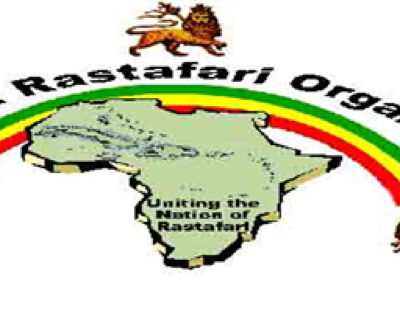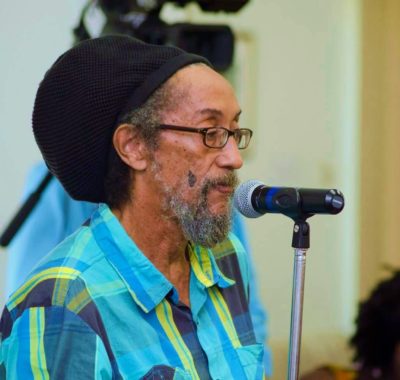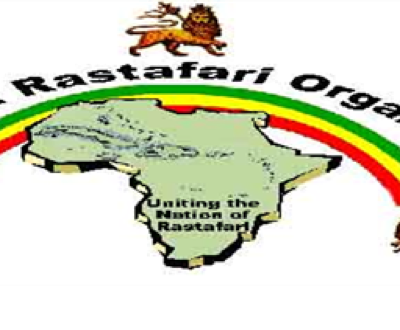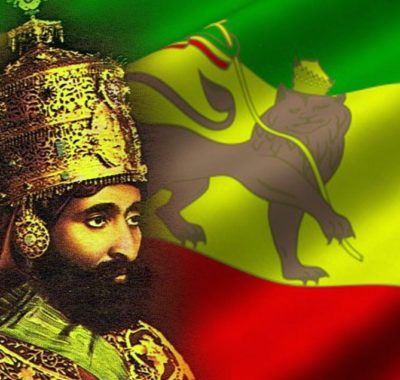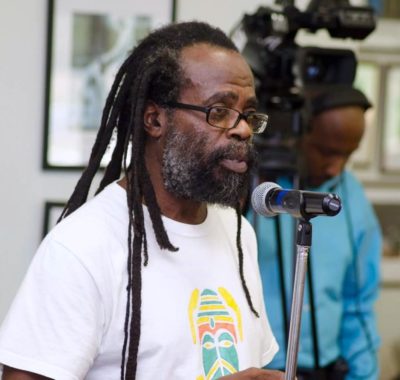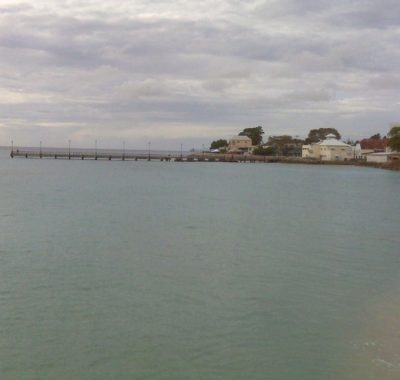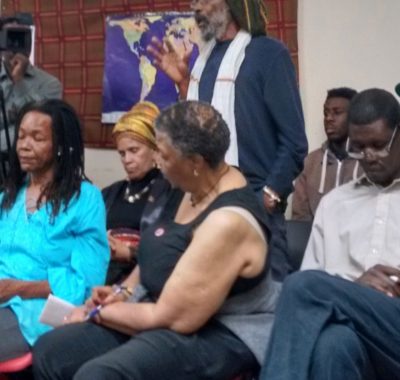Ras Iral Jabari – Eulogyhttp://reparationsforsettlement.net/wp-content/uploads/2020/06/Ras-Iral-Jabari-Eulogy-1.pdf
ICAR newsletter ISSUE#3http://reparationsforsettlement.net/wp-content/uploads/2019/02/ICAR-newsletter-ISSUE3.pdf
ICAR newsletter 2http://reparationsforsettlement.net/wp-content/uploads/2018/11/ICAR-newsletter-2.docx
PAFM Paper for SA – Steve Reidhttp://reparationsforsettlement.net/wp-content/uploads/2018/10/PAFM-Paper-for-SA-Steve-Reid-.pdf
I.C.A.R
Reason for Newsletter
The ‘Voice of ICHI-ROU-GANAIM’ which is the name of our ICAR newsletter, should be seen as one of the ways by which the Rastafari community in Barbados can be kept in the know with current affairs of interest to Rastafari, previous history and achievements of ICAR, ongoing events and activities of Rastafari regionally and internationally. Over the years as well members of the public have often expressed that they would like to find out some more about the Rastafari way of life (Livity). This newsletter will therefore be one medium through which this form of sharing knowledge and enlightenment can take place. The newsletter will be published during the first seven days of each month and will be posted on the ICAR page on Facebook.
Origins/History of ICAR Part 1
As the 1990s came to a close and the dawning of a New Millennium of the 21st century commenced, the need for a collective voice of Rastafari, whether we were Nyahbinghi, Twelve Tribes of Israel, Bobo Shanti or even not affiliated to any particular House or Mansion, became more necessary given the trials and tribulations of our Rastafari communities.
The issues negatively impacting on our sistren, youths, elders and families in general suggested that our communities would be well served with a new organisation possessing effective human resources capable of representing, lobbying, advocating and knowledge sharing at all levels of civil society. Hence in December 1997, the Barbados Rastafari Working Committee was formed in the presence of Elder Ras Sam Brown of Jamaica at the Parkinson Community Centre as it was then called, in the Pine, St. Michael. This collective of ones proceeded to organize the August 1998 International Rastafari Conference which hosted Rastafari and other supporters from over 20 countries in the Caribbean and beyond.
The Eastern Caribbean Rastafari Organisation (ECRO) was established in 1999 in St. Lucia as a result of our Rastafari brothers and sisters from the nearby islands, who had attended the 98 conference, deciding to initiate their own organs in their respective countries. The thinking at the time was that in the same way Marcus Mosiah Garvey had formed the UNIA and similarly that H.I.M. Haile Selassie had been instrumental in the establishment of the Organisation of African Unity, Rastafari in the region needed to organise and centralise in our common goals of Repatriation and Reparations.
When we gathered the following year in Dominica (Waitikubuli), ECRO was then renamed C.R.O., the Caribbean Rastafari Organisation. It was at this eventful conference in the ‘Nature Island’ that we considered renaming some of our local organisations after the indigenous names of our island homes. Antigua became Wadadli, St. Lucia became Iyanola and Barbados was renamed ICHI-ROU-GANAIM…’the red hills with the white teeth’, depicting the vision of the coast of this island on approaching it by boat from the windward east coast by the indigenous ancestors. According to one of the island’s leading historians as well, the word also described three of the inhabitants of the island at various points in time during that era pre 1492.
Current/Ongoing ICAR activities
- Movie night. ICAR members initiated a movie night activity that would serve as a fund-raising venture as well as an occasion for ones to come together socially and share some quality time.
- Fund-raising by sale of veg/ital (natural) lunches on Sundays to raise funds for an ICAR representative to attend the upcoming All Africa Rastafari Gathering conference in Ethiopia in November.
- Meeting turn: This ancient activity was started so that there could be some financial interaction amongst members as well as non-members in these tough economic times.
- Ongoing representation also exists by ICAR on local, regional and international organisations such as the Caribbean Policy Development Center (CPDC), Caribbean Rastafari Organization (C.R.O.) and the Caribbean Pan-African Network through the CRO membership.
Black to Black – by Steve Reid
My friend… my enemy
My partner… my competition
My hope… my despair
My lover… my conspiratress
My strength… my weakness
My vision… my cloud
My people… my loneliness
My joy… my pain
My heart… my dagger
My peace… my war
My rise… my fall
My beginning… my end
My land… my exclusion
My future… my history
By Ras Shango Baku
7th Feb 2017
Attended Professor Horace Campbell’s inauguration as Kwame Nkrumah Chair of African Studies at Ghana University. An impressive array of dignitaries: high-ranking university personnel, members of Parliament, foreign ambassadors, delegations of students from China and the UK alongside local undergrads, attended. Among them were program organizer, Professor Esi Sutherland, Samia Nkrumah, members of the arts and cultural elite, but not as many Rastafari as InI would have expected.
Campbell’s maiden speech focused on the need for reconstruction, transformation and unity for the future of Africa – which he said was integrally tied to the future of humanity. We need to utilize new technologies, he urged, harvested from primordial elements of village life, rather than buy into the theory of linear western development, which would leave us lagging behind in the race to catch up with the mythical ‘First World’ and its death-dealing notions of progress.
We need a Green Wall to stop the encroachment of the Sahara and the ‘overheating’ of Africa leading to our self-incineration! Our search for water should focus on untapped resources – the lakes beneath Africa’s surface that could serve to refill our dwindling reserves and create transportation canals for home-grown produce, industry and linkage. Solar power and wind-farming could help us achieve the quantum leap that would revitalize Africa’s hopes, status, and regenerate our planetary future. Our attitudes to education, social equality, health, agriculture, diversity, should be transformed to fuel a new vision of Nkrumahism fitted to the 21st century. The University needed to become a key player in that process of transformation, providing the intellectual energy that would drive positive indigenous change.
Campbell’s delivery was measured, unhurried and expansive. Within it was a revolutionary message that rekindled the ideals of Pan African thought and action in the spirit of Nkrumah. He was bold and invited us to reconsider Donald Trump’s motto: Make America Strong Again in the light of Make America White Again! He referenced his recent work Global NATO and the Catastrophic Failure in Libya – a treatise on circumstances surrounding the political assassination of Quadafi by people and systems that were threatened by his Pan African agenda. He called on all present to support him in fulfilling the great task at hand, while giving specific respect to Rastafari and the importance of freeing ourselves from “mental slavery”.
Perhaps it was not what was expected of the third Occupant of this Chair, the first non-Ghanaian, non-‘African‘, to take up this prestigious position. At the end of his discourse a slightly shell-shocked audience slowly rose to its feet to acknowledge a new champion of Nkrumah’s legacy, with a lengthy and sustained ovation.
During the post-ceremony reception Horace Campbell, when asked by Rastafari, “How can we help?” responded warmly, “Let’s have a grounation.”
Forward!
(Shango Baku 8/2/17)
Enslaved Woman – by Steve Reid
I breed workers for my master.
I breed for my master.
I breed for the strongest in the yard.
I breed… it’s hard.
I cook for my mistress.
I scrub my mistress.
I nurse for my mistress.
I am raped for my mistress.
I can’t love my children.
I have no children.
I have no man.
I can’t love a man.
I have no god, my god is dead.
I have no friends, my friends are dead.
I have no hope, my hope is dead.
I have no peace, my peace is dead.

